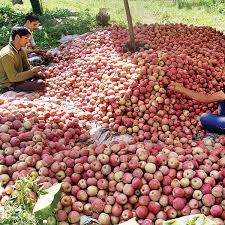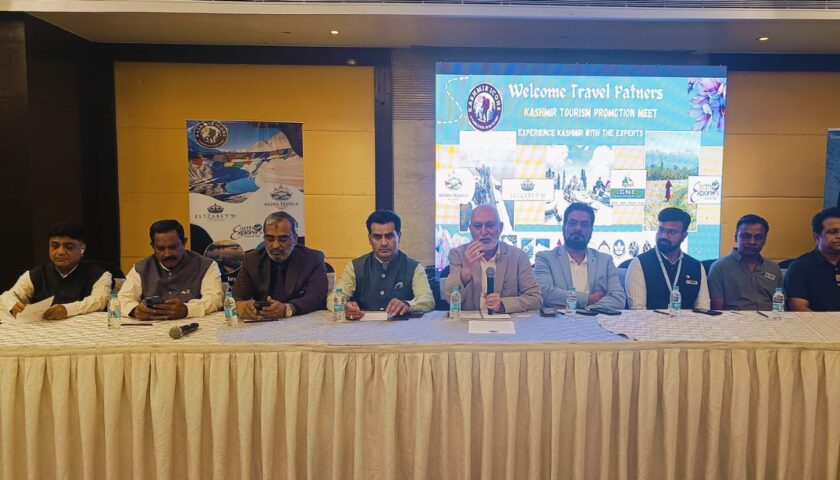 General Secretary, Jammu and Kashmir Kisan Tehreek, Ghulam Nabi Malik today said the fruit industry of Kashmir is in doldrums and needs focused attention and huge public investment.
General Secretary, Jammu and Kashmir Kisan Tehreek, Ghulam Nabi Malik today said the fruit industry of Kashmir is in doldrums and needs focused attention and huge public investment.
In a statement here today, he said the horticulture is the most important income generating industry of J&K, and Kashmir is an ideal region in the world for growing fresh and dry fruits.
“The demand for Kashmiri fruit within the country is huge and export potential is also very high,” he said.
Malik said the fruit industry in Kashmir is generating Rs 6000 crore revenue and providing employment to more than 33 lakh people directly and indirectly in the state.
He said even as it is claimed that huge sums are spent for the expansion and development of the sector, “the fact remains that per hectare yield is very low. We are unable to produce our own latest and advanced quality of nurseries of international standard.”
“It is sad that almost all departmental nurseries in the state are defunct and the business is wholly run by private producers. Research institutions are unable to face the challenges faced by this industry. We could not control the early blooming of almonds, apricots, cherries and now the apple as well,” he said.
He said the government has failed to provide the latest awareness to the growers to produce a quality walnut which could compete in the world market. “Our apple industry is subject to the interests of bureaucracy and corporate amalgam, which is why we are being dubbed as toxic fruit producers.”
“We don’t have a disease forecasting system available which hampers our efforts to produce a disease free fruit. We are still for behind the standard packaging method. There are still no genuine efforts to provide sufficient cold storage facilities to the growers.
Malik said, “No sufficient funds, so far, have been allotted for providing proper irrigation facilities. Despite tall claims by the government at various levels no crop insurance scheme is implemented in the horticulture sector. We could not enhance the processing industry to the level so that the C Grade culled fruit which consists of 30 per cent of our total fresh fruit could be utilized and made marketable.”
“There is total mismanagement in the packaging and transportation system. No market management for the benefit of growers is in place and market depends on the whims of aarties and transporters,” he said.
Malik said that in absence of crop insurance scheme there is no adequate government mechanism to provide relief to the growers who suffer losses due to natural disasters.
“Jammu and Kashmir Kisan Tehreek feels that to make Horticulture attractive and more profitable, a comprehensive Horticulture policy is the need of the hour,” he said.
“Effective measures need to be taken so that disease free and quality nurseries, public investment in the field of research, addressing of pre and post harvesting problems, enhancement of processing industry, stoppage of substandard fertilizers, pesticides, insecticides and fungicides and coordination between the research institutions, horticulture department and the growers could be ensured,” he suggested.
In addition the easy availability of high quality walnut, almond and cherry plants from Horticulture extension centers be made available so that the fruit neglected so far can flourish again, he said.
Kashmir fruit industry in doldrums




